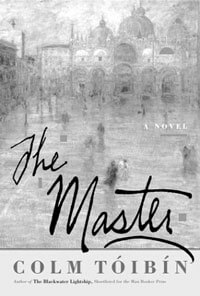Henry James depicted in the twilight of his career, accomplished, yet loveless
The book shares a lot in common with Kazuo Ishiguro’s masterpiece “The Remains of the Day,” about the repressed inner life of an English butler whose consummate devotion to his profession blinds him to love as well as to humanity’s greatest horrors.
As did Ishiguro in that novel, Toibin draws a vivid portrait of a man bound by an inscrutable inner code to observe life from a distance rather than take part in it. The novel begins in the latter phase of James’ career with the London debut of his play “Guy Domville.” The play is a roaring flop, a wound made more acute by the concurrent success of the play across the street, “An Ideal Husband” by Oscar Wilde, whom James views as a scalawag and imposter.
You might think Toibin studied how James, “the master,” grappled with failure. Or perhaps, you guess, Toibin intends to use Wilde’s flamboyant lifestyle as a running counterpoint to James’ cautiousness, just as Tom Stoppard used Wilde in his play “The Invention of Love” as a contrast to the more circumspect A. E. Housman.
But you’d be wrong.
Instead, Toibin depicts James’ retreats into the relatively safe, quiet world of fiction writing and his visits to high society friends.
Toibin suggests that the two main reasons for James’ self-repression are his commitment to his art and his inability to enjoy his homosexual desires. Despite a number of tantalizingly close erotic encounters with men who seem to be offering their services—even a nighttime naked cuddle with future Supreme Court Justice Oliver Wendell Holmes—James consistently fails to get it on.
“The Master,” like “The Remains of the Day,” wrings a surprising amount of drama out of small episodes like those in which James seems to be on the verge of breaking out of his shell, but never does. The ensuing thrill for the reader is a bit like watching those cartoons where Wile E. Coyote chases the Road Runner without ever catching him. The suspense isn’t whether James will decline sexual intimacy, but specifically how in each instance that presents itself.
One of the most memorable of these encounters involves a pair of servants named the Smiths, a husband and wife who serve James faithfully until he shows them unexpected generosity and thereby sacrifices his authority over them. The subtle intensity of these interactions is a tribute to Toibin’s artistry.
If there is a flaw in this skillful novel, it lies in the book’s most important difference with “The Remains of the Day.” After finishing Ishiguro’s book, you come away with a strong appreciation and understanding of the life of a manservant. After finishing “The Master,” however, you’re not that much wiser about the art of Henry James. Perhaps this wouldn’t have mattered had the story been of a fictitious writer named James Henry instead of Henry James. But even the book’s very title begs the question. Of what was Henry James the master?
The novel asks us to take on faith James’ literary greatness. Though several characters refer to James’ reputation as a master writer, that same recognition of his accomplishment is missing from the novel where Tobin’s effective, judicious writing style makes no attempt to respond to James on a formal level.
Toibin shows James’ dedication to his work, eventually hiring a stenographer when his hand becomes too weak to write. What Toibin omits is James actually engaged in his craft, grappling with his sumptuously ornate sentences. Toibin might have included more of James’ writing, particularly a scene or two that offers some insight into how he crafted his complex arrangements of words.
The only hint we get of James’ creative process is watching him interact with various historical personages who inspired his fictional characters. Like guest stars making cameo appearances on stage, these personalities appear and recite their parts before disappearing into the wings so James can spin their lives into fiction, the layman’s perception of how a writer works. If that’s the sum of James’ accomplishment as a writer, then what’s the difference between his career and Woody Allen’s?
Ultimately, “The Master” is a fine novel with admirably high ambitions and a well-told story. The book only disappoints because its subject demands something greater than finery—greatness itself.


































